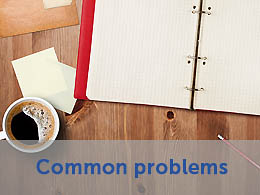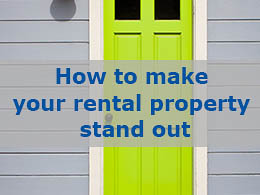A beginner's guide to being a landlord
5. Be prepared to deal with disputes
As a landlord, you may come across difficult situations with your tenants that require mediation or dispute resolution. These scenarios can be complicated and stressful, especially if you’re not used to dealing with conflict.
Many new landlords underestimate the amount of time or knowledge needed to deal with these situations.
A property manager on the other hand, is highly trained and familiar with the rights and obligations of both landlords and tenants. They are constantly upskilling on the latest regulations, and when required, can represent you at mediation or tenancy tribunal hearings.
A property manager will do all they can to ensure problems don’t arise in the first place, or if they do, they’ll resolve them quickly and efficiently, so you don’t need to worry.
4. Make sure your property is compliant
By July 2016 all rental properties must be fitted with operational smoke alarms and by July 2019, you will also need to ensure your rental property meets new ceiling and underfloor insulation standards set out under the Residential Tenancies Act.
A property manager can arrange a quote for your alarms, or organise for a professional to inspect your property and recommend the number of smoke alarms needed, and where they should be placed, to ensure you are compliant.
3. Find the right tenants
One of the most challenging aspects of being a landlord is finding the right tenants. You want tenants who'll take good care of your property and pay their rent on time.
There are a lot of different factors to consider, such as whether you want long-term tenants, if you're going to furnish the property and if you'll allow pets.
A property manager can help you find the right tenants. At Barfoot & Thompson, we have an extensive portfolio of potential tenants and a rigorous selection process, including credit and reference checking.
2. Prepare your property for the rental market
Your new tenants will expect the facilities to be in working order, the outdoor area to be tidy, and the property to be secure. It's also in your best interest to make sure your property is handed over in full working order. Here are some things to check:
Inside
- The locks and deadbolts to doors and windows - make sure they're in working order and secure
- Light bulbs - check they're all working
- Taps and pipes - check for leaks or drips. This can cause long-term damage to your property as well as causing issues for your tenants
- Test all appliances to make sure they work property. If there are instruction manuals, make sure they are made available
- The property is clean and presentable. This might include having the carpets cleaned and/or getting in professional cleaners.
Outside
- Cut the lawns and make sure the garden is tidy and free of weeds
- Trim trees and bushes back - make sure there is plenty of clearance between any overhanging branches and your guttering system
- Clean decking, balconies and paths - remove mildew and make sure they're not slippery
- Check for cracks, leaks and other issues that may cause damage to your property in the long run - and get these fixed.
A property manager will be able to recommend qualified tradespeople, or arrange to have repairs carried out on your behalf.
1. Find out how much rental income you could get
This is a great place to start when you're thinking of renting out your property - and it's important to get it right. Go too high and you'll risk not finding any tenants. Go too low and you'll miss out on valuable rental income.
A property manager can give you an idea of how much rent you could get in the current market. They also conduct regular rental reviews, so you can be sure you'll always be charging the right amount.
Request a rental appraisal
To request a rental appraisal, fill in our online form, or contact one of our property managers.
Some final tips and words of wisdom
- If you're intending to be out of the country for 21 days or more, you must appoint an agent to act your your behalf. That person takes on the same responsibilities and obligations as you, the landlord, in your absence
- You must provide your tenants with 24 hours notice if you’re going to enter the property to carry out repairs, and 48 hours notice if you want to conduct a routine inspection
- You must lodge any bond money paid by the tenant with Tenancy Services within 23 working days of receiving it
- Make sure you organise comprehensive insurance and read the fine print to ensure your policy covers everything that’s important to you.
Need help with your rental property?
Find out more about how we help landlords and the property management services we offer. You can also book a rental appraisal and one of our property managers will be touch.
Whether you’ve just bought an investment property, or are renting out your family home, there’s a lot to arrange when you become a landlord for the first time. To start you off on the right path, here are a few things to think about.







